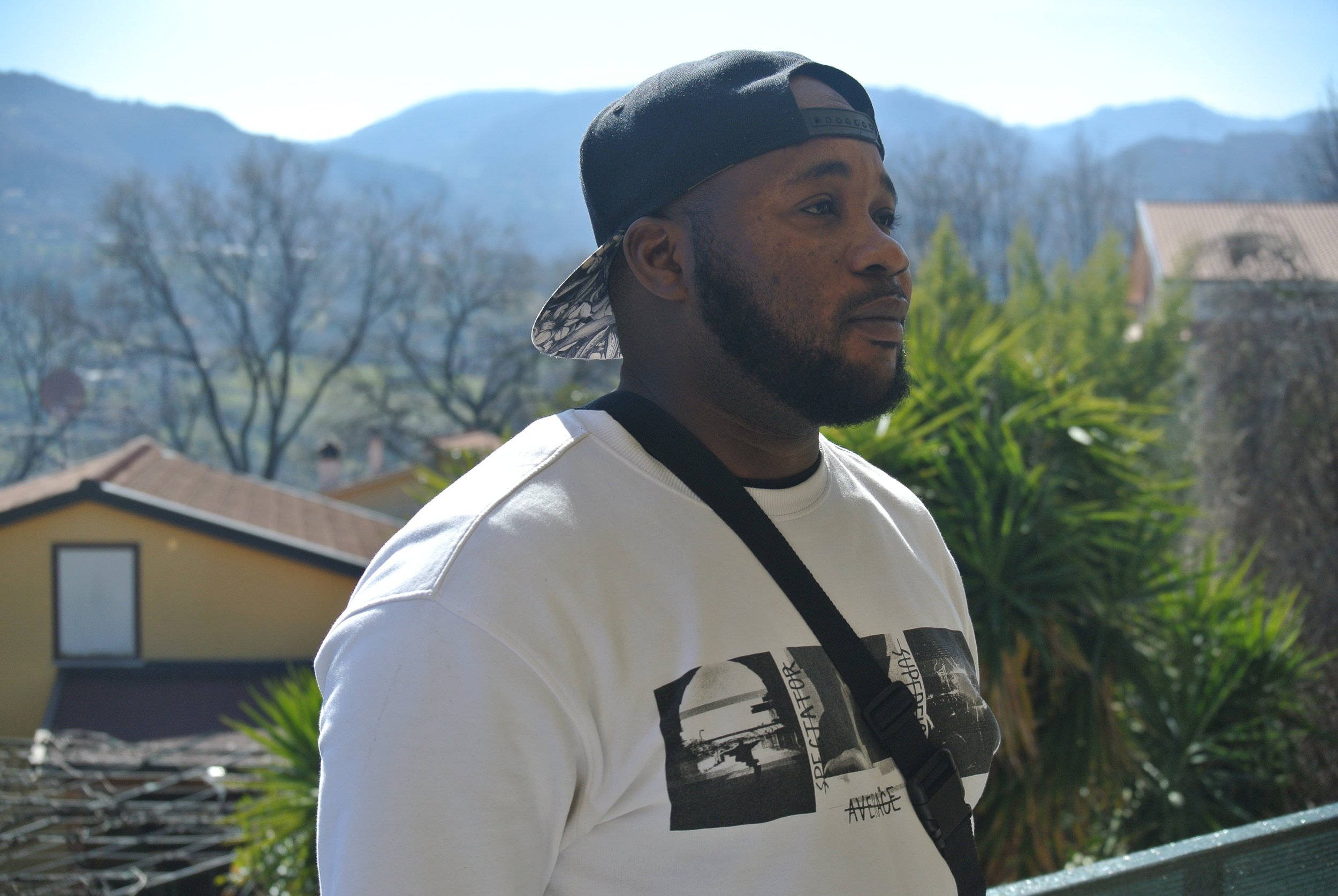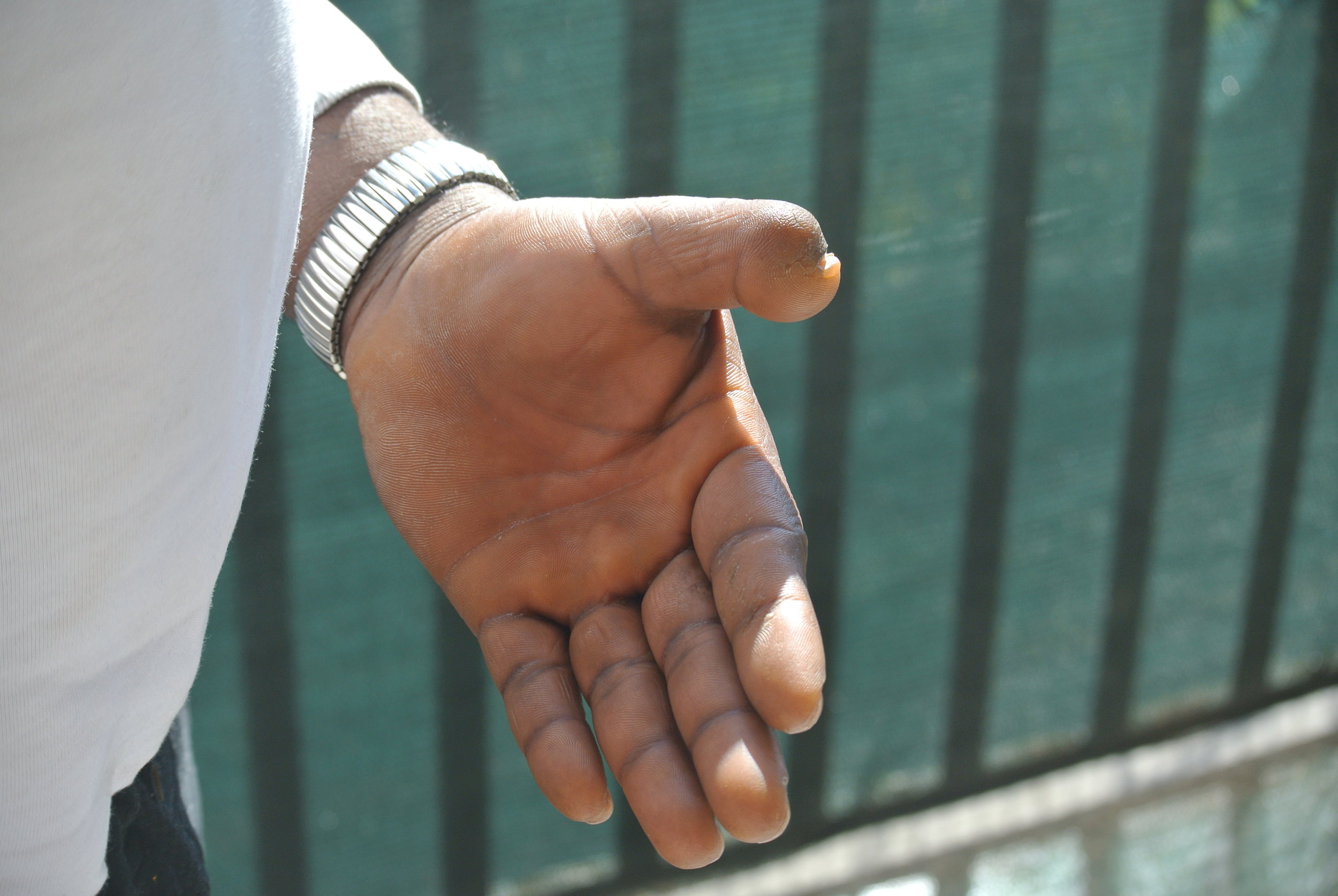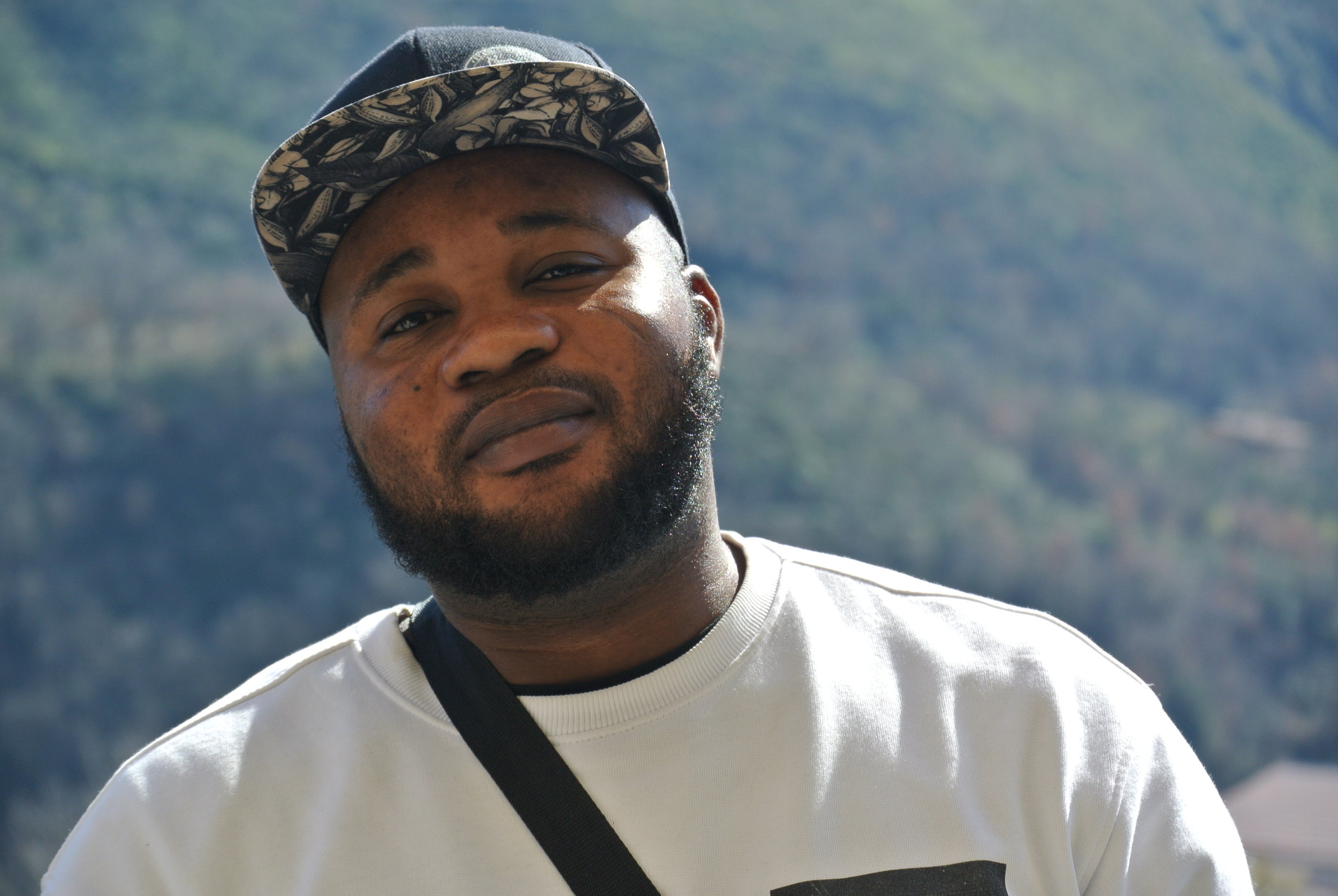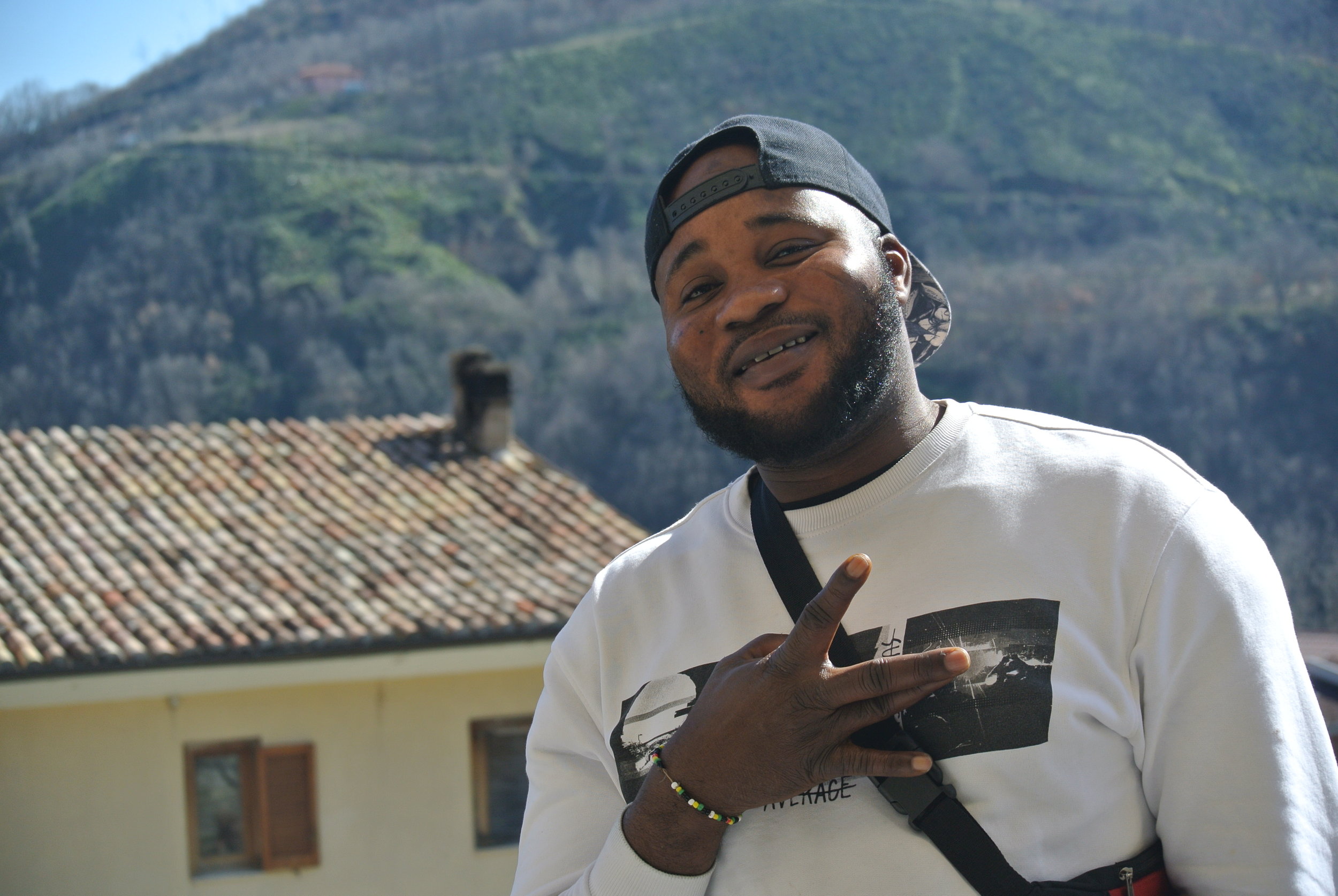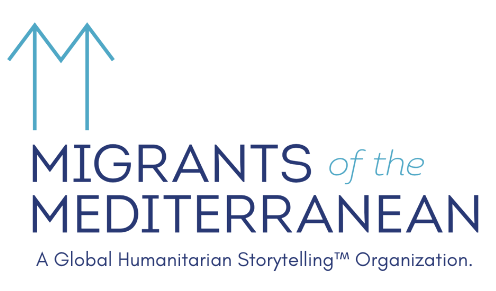Meet Issaka
In Mendicino, Calabria; 19 February 2019. © Pamela Kerpius/Migrants of the Mediterranean
Meet Issaka.
26 years old and from Ghana.
To reach Italy he crossed four countries: Ghana, Burkina Faso, Niger, and the most dangerous of all, Libya.
His journey took about one year, departing Ghana in September 2015.
He arrived in Naimey, Niger for a stop before arriving in Agadez after about one week. He stayed in a compound there among 25 people. Everyone chipped in money to buy food. He prayed a lot to God. He and the others were afraid.
He crossed the Sahara desert in the back of a pickup truck with 25 people, including four women; it took one week. At least three people in his caravan died. They fell to the ground. The truck stopped so the other passengers could cover their bodies with dirt.
“We just prayed for them,” he said before they left the bodies behind.
“You don’t know your left and right. You just go forward.”
The engine broke down and aggravated the travel. He went two whole days without water. People drank urine to survive, “piss and drink,” he said.
His first stop in Libya was Gadron. It was a brief break point before arriving at his first true destination, Sabha, Libya.
There were about 100 people in the ghetto in Sabha. There were forced to drink salty water. They were given one piece of bread each day to eat. The traffickers demanded money from him but he didn’t have any. He was beaten, like all the others were too. He was trapped in Sabha for a month.
“In Libya you cannot have your peace of mind,” he said.
He transferred to Tripoli and lived in a house for one month, looking for work in the meantime. He left for Zawiyah, on the coast. He stayed for a week. There was only salty tap water to drink and to to bathe in. People had skin infections from it, scabies and sores.
He attempted to cross the sea. His boat was stopped at though and everyone aboard was beaten and brought to prison in Zawiyah. They locked him in a small room. He left daily after a local man paid the prison guard to allow him to be removed from the premises for work; Issaka was paid a small amount of money for his labor. He was released from prison after three weeks.
He didn’t want to cross the sea again after this, but there was fighting in Libya and he understood there was no other choice, “I go to survive.”
“I go to survive.”
Issaka crossed the Mediterranean Sea on a rubber dinghy in the middle of the night with 120 people, including a one-year old baby, two or 3 kids, and about 30 women. He was afraid because he thought “anything can happen,” while he was out there. He was on the rubber boat for two days before a German rescue vessel picked him up. There were so many on board that he was transferred to the Save The Children rescue ship, before finally reaching Sicily on 12 September 2016.
He said, as everyone says, again and again: “We just thank God that we are still alive.”
Issaka is an amazing human being.
